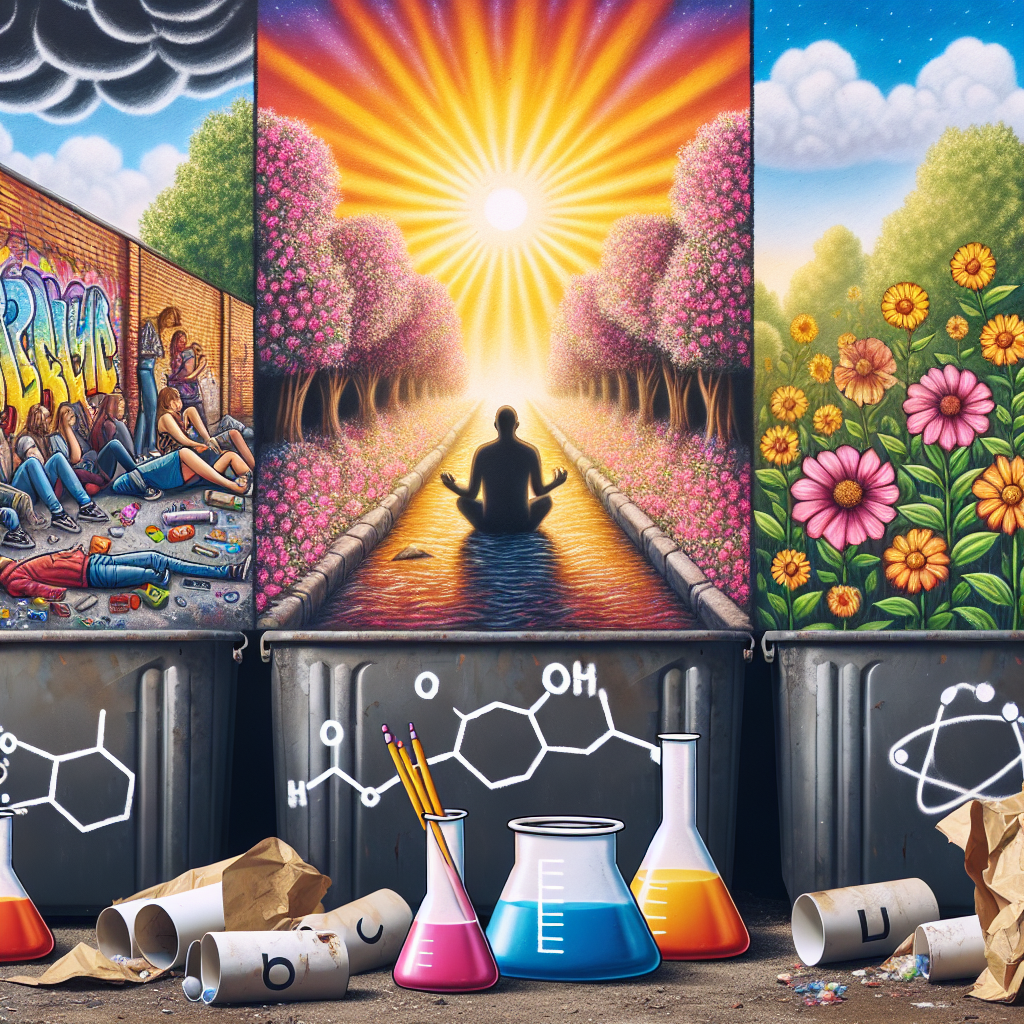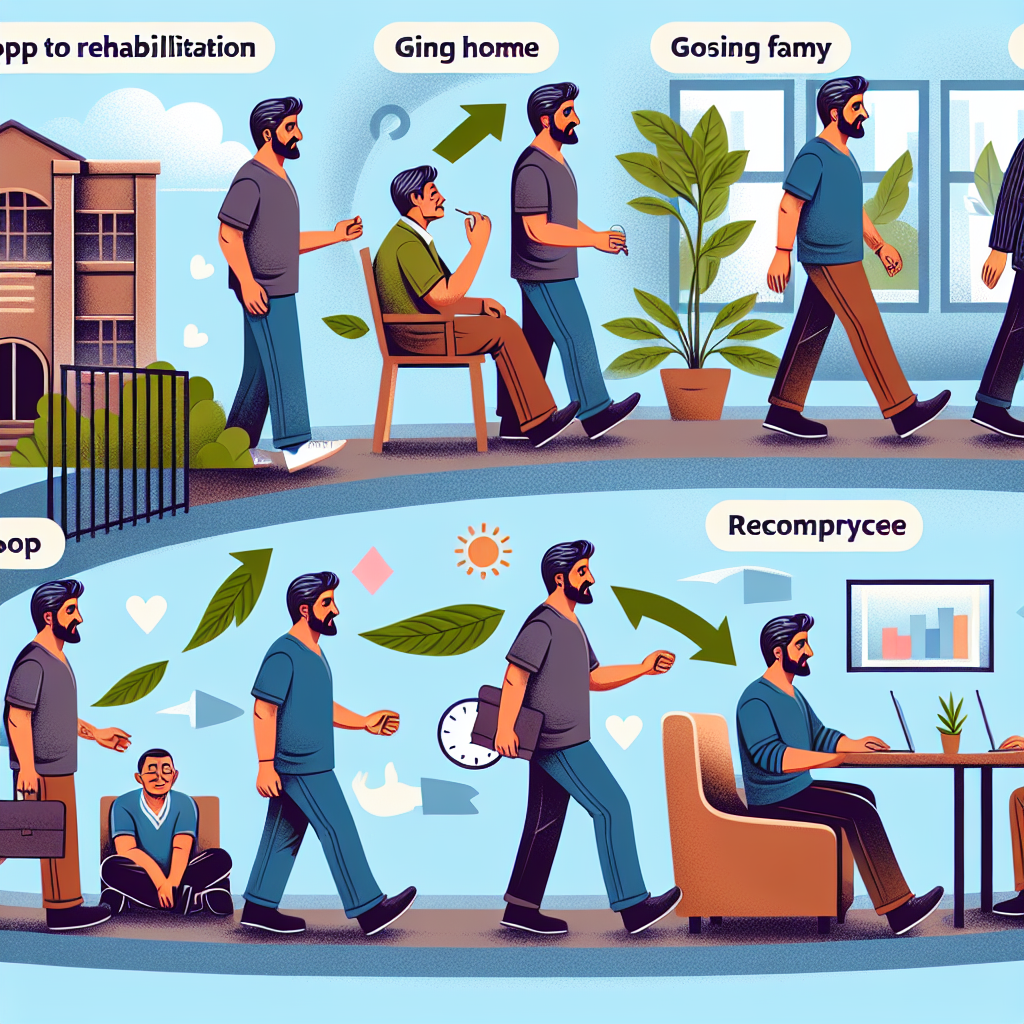-
Table of Contents
“Reclaim Your Future: Building a New Life Beyond LSD”
Introduction

Building a new life after LSD addiction involves a multifaceted approach that addresses both the psychological and physical aspects of recovery. This journey requires a strong commitment to personal growth, the establishment of a supportive network, and the development of healthy coping mechanisms. It begins with acknowledging the addiction and seeking professional help, which may include therapy, counseling, and possibly medical intervention. Embracing a new lifestyle often involves setting realistic goals, finding new hobbies and interests, and reconnecting with loved ones. Additionally, it is crucial to create a stable environment that minimizes triggers and promotes well-being. With determination and the right resources, individuals can successfully overcome LSD addiction and build a fulfilling, drug-free life.
Overcoming the Challenges of Post-LSD Recovery
Overcoming the challenges of post-LSD recovery is a journey that requires immense courage, resilience, and a steadfast commitment to personal growth. For those who have struggled with LSD addiction, the path to building a new life can seem daunting, but it is entirely possible with the right mindset and support system. The first step in this transformative process is acknowledging the need for change and seeking help. This often involves reaching out to healthcare professionals, therapists, or support groups who specialize in addiction recovery. These resources provide a foundation of understanding and guidance, helping individuals navigate the complexities of withdrawal and the psychological effects of LSD.
Transitioning from addiction to recovery is not just about abstaining from the substance; it is about addressing the underlying issues that led to the addiction in the first place. This often requires deep introspection and a willingness to confront past traumas or emotional pain. Therapy can be an invaluable tool in this regard, offering a safe space to explore these issues and develop healthier coping mechanisms. Cognitive-behavioral therapy (CBT), for instance, is particularly effective in helping individuals reframe negative thought patterns and behaviors associated with addiction.
As individuals progress in their recovery, building a new life involves creating a sense of purpose and direction. This can be achieved by setting realistic and achievable goals, whether they pertain to career aspirations, educational pursuits, or personal development. Engaging in activities that foster a sense of accomplishment and self-worth can significantly enhance one’s motivation to stay on the path of recovery. Additionally, finding new hobbies or interests can provide a positive outlet for energy and creativity, further reinforcing a healthy lifestyle.
Another crucial aspect of post-LSD recovery is rebuilding relationships that may have been strained or damaged during the period of addiction. This process requires patience, honesty, and a willingness to make amends. Open communication and demonstrating consistent, positive changes in behavior can help restore trust and strengthen bonds with loved ones. Support from family and friends can be a powerful motivator, providing emotional stability and encouragement throughout the recovery journey.
Physical health also plays a vital role in the recovery process. Regular exercise, a balanced diet, and adequate sleep are essential components of a healthy lifestyle that can aid in the healing of both the body and mind. Exercise, in particular, has been shown to reduce stress, improve mood, and increase overall well-being, making it a valuable addition to any recovery plan.
Moreover, mindfulness practices such as meditation and yoga can help individuals stay grounded and present, reducing the risk of relapse. These practices promote self-awareness and emotional regulation, enabling individuals to better manage cravings and triggers. By incorporating mindfulness into daily routines, those in recovery can cultivate a sense of inner peace and resilience.
Ultimately, building a new life after LSD addiction is a multifaceted endeavor that requires dedication, support, and a proactive approach to personal growth. While the challenges may be significant, the rewards of a fulfilling, substance-free life are immeasurable. By embracing the journey with an open heart and mind, individuals can overcome the obstacles of post-LSD recovery and emerge stronger, more self-aware, and ready to embrace the future with hope and determination.
Rebuilding Relationships After LSD Addiction
Rebuilding relationships after LSD addiction can be a challenging yet profoundly rewarding journey. The path to recovery is often fraught with obstacles, but the process of mending broken bonds can lead to deeper, more meaningful connections. Understanding the impact of addiction on relationships is the first step toward healing. LSD, a powerful hallucinogen, can distort reality and impair judgment, leading to behaviors that strain or sever relationships. Friends and family members may feel hurt, betrayed, or confused by the actions of someone under the influence. Recognizing these feelings and taking responsibility for past actions is crucial in the rebuilding process.
Open and honest communication is the cornerstone of repairing relationships. It is essential to approach loved ones with humility and a genuine desire to make amends. Apologizing for past behaviors and acknowledging the pain caused can pave the way for forgiveness. However, it is important to remember that forgiveness is a process that takes time. Patience and persistence are key, as rebuilding trust does not happen overnight. Demonstrating consistent, positive changes in behavior can help to restore faith and confidence in the relationship.
In addition to communication, seeking professional help can be beneficial. Therapists and counselors can provide guidance and support for both the recovering individual and their loved ones. Family therapy, in particular, can offer a safe space for everyone to express their feelings and work through issues together. This collaborative approach can strengthen the family unit and foster a sense of unity and understanding.
Another important aspect of rebuilding relationships is setting healthy boundaries. During addiction, boundaries may have been blurred or disregarded, leading to unhealthy dynamics. Establishing clear, respectful boundaries can help to create a more stable and supportive environment. This may involve setting limits on certain behaviors, such as avoiding situations that could trigger a relapse, or agreeing on specific ways to communicate and resolve conflicts.
Rebuilding relationships also involves self-care and personal growth. Recovery is not just about abstaining from substances; it is about creating a fulfilling and balanced life. Engaging in activities that promote physical, emotional, and mental well-being can enhance one’s ability to connect with others. Pursuing hobbies, practicing mindfulness, and maintaining a healthy lifestyle can contribute to a more positive outlook and greater resilience.
Support groups can also play a vital role in the recovery process. Connecting with others who have experienced similar struggles can provide a sense of camaraderie and understanding. Sharing experiences and learning from others can offer valuable insights and encouragement. These groups can also serve as a reminder that one is not alone in their journey, fostering a sense of community and belonging.
Ultimately, rebuilding relationships after LSD addiction requires a commitment to change and a willingness to put in the effort. It is a journey that involves both personal and interpersonal growth. While the road may be long and challenging, the rewards of renewed connections and deeper relationships are immeasurable. By embracing the process with an open heart and a determined spirit, it is possible to build a new life filled with love, trust, and mutual respect.
Finding Purpose and Passion in a Sober Life
Rebuilding a life after overcoming LSD addiction is a journey that requires immense courage, resilience, and determination. The path to sobriety is often fraught with challenges, but it also opens up opportunities for personal growth and self-discovery. Finding purpose and passion in a sober life is not only possible but can be profoundly fulfilling. As individuals emerge from the shadows of addiction, they often find that their experiences have equipped them with unique insights and strengths that can be harnessed to create a meaningful and vibrant future.
One of the first steps in finding purpose after addiction is to reconnect with oneself. During the throes of addiction, many people lose touch with their true selves, their values, and their aspirations. Sobriety offers a chance to rediscover these essential aspects of identity. Engaging in self-reflection, whether through journaling, meditation, or therapy, can help individuals gain clarity about what truly matters to them. This process of introspection can reveal passions and interests that may have been neglected or forgotten during the years of substance abuse.
As individuals begin to identify their passions, it is crucial to explore new activities and hobbies that align with these interests. Engaging in creative pursuits, such as painting, writing, or playing music, can be incredibly therapeutic and provide a sense of accomplishment. Physical activities, like hiking, yoga, or dancing, not only promote physical well-being but also offer a natural high that can replace the artificial euphoria once sought through drugs. Volunteering and giving back to the community can also instill a sense of purpose and connection, as helping others often brings a profound sense of fulfillment.
Building a support network is another vital component of finding purpose in a sober life. Surrounding oneself with positive influences, such as supportive friends, family members, and mentors, can provide encouragement and accountability. Support groups, like Narcotics Anonymous or other recovery communities, offer a safe space to share experiences and gain insights from others who have walked a similar path. These connections can be a source of strength and inspiration, reminding individuals that they are not alone in their journey.
Education and career development can also play a significant role in creating a purposeful life after addiction. Pursuing further education or vocational training can open up new opportunities and provide a sense of direction. Setting achievable goals and working towards them can instill a sense of purpose and drive. Whether it’s starting a new career, going back to school, or developing new skills, these endeavors can help individuals build a future that is both stable and fulfilling.
Moreover, it is essential to practice self-compassion and patience throughout this journey. Recovery is not a linear process, and setbacks are a natural part of growth. Embracing these challenges with a compassionate mindset can foster resilience and perseverance. Celebrating small victories and acknowledging progress, no matter how incremental, can boost confidence and motivation.
Ultimately, finding purpose and passion in a sober life is about embracing the present moment and looking forward to the future with hope and optimism. It is about recognizing that the journey of recovery is not just about leaving behind the past but also about building a new, vibrant life filled with meaning and joy. By reconnecting with oneself, exploring new interests, building a supportive network, and pursuing personal and professional growth, individuals can transform their lives and discover a profound sense of purpose and fulfillment in sobriety.
Strategies for Maintaining Long-Term Sobriety
Building a new life after LSD addiction is a journey that requires dedication, resilience, and a well-structured plan. One of the most crucial aspects of this journey is maintaining long-term sobriety. To achieve this, it is essential to adopt strategies that not only help in staying away from LSD but also foster a fulfilling and meaningful life. The first step in this process is to create a strong support system. Surrounding oneself with positive influences, such as supportive family members, friends, and support groups, can provide the encouragement and accountability needed to stay on track. Engaging in regular meetings with a therapist or counselor who specializes in addiction recovery can also be immensely beneficial. These professionals can offer guidance, coping strategies, and a safe space to discuss challenges and progress.
In addition to building a support network, it is important to develop healthy routines and habits. Establishing a daily schedule that includes regular exercise, balanced meals, and sufficient sleep can significantly improve physical and mental well-being. Exercise, in particular, has been shown to reduce stress, improve mood, and increase overall energy levels. Incorporating mindfulness practices, such as meditation or yoga, can also help in managing cravings and maintaining emotional stability. These practices encourage self-awareness and provide tools to cope with triggers and stressors that may arise.
Another key strategy for maintaining long-term sobriety is to set realistic and achievable goals. These goals can be related to personal growth, career aspirations, or hobbies and interests. By focusing on positive and constructive activities, individuals can create a sense of purpose and fulfillment that reduces the temptation to return to old habits. It is also important to celebrate small victories along the way, as recognizing progress can boost motivation and confidence.
Furthermore, staying informed and educated about addiction and recovery can empower individuals to make informed decisions and stay vigilant against potential relapse. Reading books, attending workshops, and participating in online forums can provide valuable insights and keep one engaged in the recovery process. It is also beneficial to stay connected with the recovery community, as sharing experiences and learning from others can offer new perspectives and reinforce commitment to sobriety.
In addition to these strategies, it is crucial to address any underlying issues that may have contributed to the addiction. This may involve exploring past traumas, unresolved emotional pain, or mental health conditions. Working through these issues with the help of a professional can lead to healing and reduce the risk of turning to substances as a coping mechanism. It is also important to develop healthy coping skills to deal with stress, anxiety, and other emotions that may arise. Techniques such as deep breathing, journaling, and engaging in creative activities can provide healthy outlets for expressing and managing emotions.
Lastly, maintaining long-term sobriety requires a commitment to ongoing self-improvement and personal growth. This may involve continuing education, pursuing new hobbies, or volunteering in the community. By continuously seeking ways to grow and evolve, individuals can create a life that is rich, fulfilling, and free from the grip of addiction. It is important to remember that recovery is a lifelong journey, and each day presents an opportunity to make positive choices and build a brighter future. With determination, support, and the right strategies, it is possible to maintain long-term sobriety and create a new life filled with hope and possibility.
Q&A
1. **What are the first steps to take after deciding to quit LSD?**
– Seek professional help, such as a therapist or addiction counselor, and consider joining a support group.
2. **How can one manage withdrawal symptoms after quitting LSD?**
– Engage in healthy activities like exercise, maintain a balanced diet, and practice mindfulness or meditation techniques.
3. **What lifestyle changes can support long-term recovery from LSD addiction?**
– Establish a stable routine, build a strong support network, avoid triggers, and pursue new hobbies or interests.
4. **How important is mental health care in recovering from LSD addiction?**
– Extremely important; regular therapy sessions and possibly medication can help address underlying mental health issues and prevent relapse.
Conclusion
Building a new life after LSD addiction involves a multifaceted approach that includes seeking professional help, engaging in therapy, establishing a strong support network, and adopting healthy lifestyle changes. Recovery is a gradual process that requires commitment, self-awareness, and resilience. By focusing on personal growth, setting realistic goals, and maintaining a positive outlook, individuals can successfully overcome the challenges of addiction and create a fulfilling, drug-free life.



